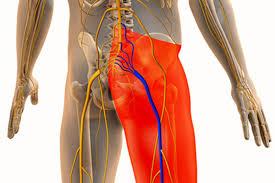The flu season typically peaks between December and February, coinciding with major holidays when families gather together. This respiratory illness affects millions of Americans annually, causing symptoms that are similar to those of the common cold. Understanding the flu, its causes, symptoms, and prevention methods helps you maintain good health during the holiday season.
What Is the Flu?
Influenza, commonly referred to as the flu, is a contagious respiratory illness caused by influenza viruses. The condition affects the nose, throat, and sometimes the lungs. It differs from the common cold in its severity and sudden onset of symptoms.
Two main types of influenza viruses cause seasonal epidemics in humans: influenza A and influenza B. These viruses undergo frequent changes, which explains why people can contract the flu multiple times throughout their lives. The condition spreads primarily through respiratory droplets when infected individuals cough, sneeze, or talk.
What Causes It?
Influenza viruses cause this condition through direct person-to-person transmission. When an infected person releases respiratory droplets containing the virus, others may inhale these droplets or touch contaminated surfaces and then touch their face. The virus can survive on surfaces for many hours under certain conditions.
Several factors increase the risk of contracting influenza. Close contact with infected individuals, weakened immune systems, and certain chronic medical conditions increase a person’s susceptibility to infection. Age also plays a role, with young children and the elderly facing higher risks of complications.
What Are the Symptoms?
Symptoms typically develop suddenly and include fever, body aches, fatigue, and respiratory symptoms. Muscle aches and joint pain commonly accompany the fever, creating widespread discomfort throughout the body. Respiratory symptoms include cough, sore throat, and nasal congestion. Additional symptoms include headaches, chills, extreme fatigue, and gastrointestinal symptoms, such as nausea and vomiting.
How Can It Affect Holiday Plans?
The flu may significantly disrupt holiday celebrations and travel plans. Infected individuals should stay home and avoid contact with others for at least 24 hours after their fever subsides without the use of fever-reducing medication. This isolation period possibly means missing family gatherings, holiday parties, or planned vacations.
Travel becomes difficult when dealing with symptoms. Airlines may restrict boarding for passengers exhibiting signs of illness, and the confined space of an aircraft has the potential to exacerbate symptoms. The condition may also affect others in your household or social circle. Family members may need to cancel plans to care for sick relatives or avoid spreading the infection to vulnerable individuals, such as elderly parents or young children.
How Can You Avoid the Flu?
The annual flu vaccination is an effective way to prevent this condition. Vaccination should occur before flu season begins, though getting vaccinated later still provides protection. Good hygiene practices help reduce the risk of transmission. Wash hands frequently with soap and water, especially after coughing, sneezing, or touching public surfaces.
Lifestyle factors also support prevention. Getting adequate sleep, eating nutritious foods, and staying hydrated help maintain a strong immune system. Avoiding close contact with sick individuals and cleaning frequently touched surfaces with disinfectant further reduces the risk of infection.
Consult an Urgent Care Provider
The flu can impact your health and holiday plans, but taking preventive measures reduces your risk of infection. Annual vaccination, good hygiene practices, and healthy lifestyle choices provide the most effective protection against this condition. If you develop symptoms or need a vaccination, consult an urgent care provider for professional medical guidance. Prompt medical attention helps manage symptoms effectively and prevent complications.
- HMS Photovoltaik: A Complete, In-Depth Guide to Modern Solar Power Solutions
- Decreto Supremo 160: A Complete and Updated Guide
- Dentiloquent: A Complete Professional Guide
- Närkes Elektriska: Your Trusted Partner in Electrical Services in Örebro, Sweden
- Litorotica Tags: Guide for Better Search, Safety, and Clarity





